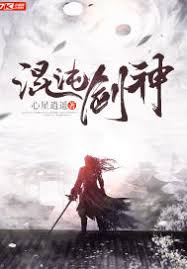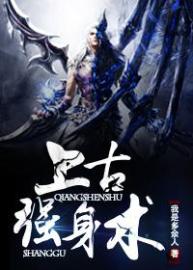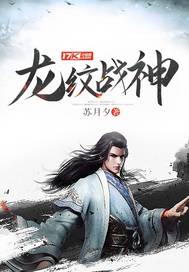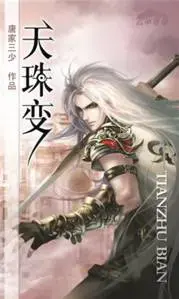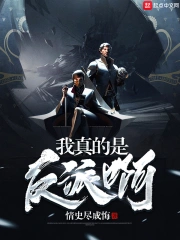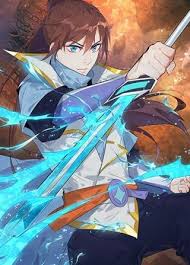The Story in 3 Sentences
A legendary swordsman from Earth, Jian Chen, dies in battle and is reborn into a harsh, magic-infused world where he must rebuild his strength from nothing.
His journey shifts from solitary survival and revenge to navigating complex political landscapes, ancient secrets, and a sprawling harem, as his power escalates to cosmic levels.
The story’s direction arcs from a gritty, personal struggle for survival to an epic, universe-spanning saga where Jian Chen’s mutated spirit and unique sword path challenge the very laws of reality.
Why It Stands Out
1. The Unkillable Underdog Who Redefines Power
Jian Chen’s defining trait is his relentless, almost pathological drive to survive and grow stronger, no matter the cost. His spirit’s mutation after near-death grants him a unique, chaotic cultivation path that defies conventional limits, making his power progression feel genuinely unpredictable and earned through sheer, brutal will. He doesn’t just climb the ranks; he shatters them, turning his greatest weakness into his ultimate weapon.
2. A Harem That’s More Than Just Romance
While featuring a classic harem, the novel gives significant narrative weight to key female characters like You Yue and Huang Luan, who are powerful cultivators in their own right with their own goals and legacies. Their relationships with Jian Chen are often forged in battle or mutual survival, adding layers of political alliance and emotional complexity that go beyond simple romantic tropes, making the harem a core part of the world’s power structure.
3. The Relentless, Rinse-and-Repeat Grind Done Right
The novel embraces its repetitive structure—battle, level up, face a stronger enemy—but executes it with such relentless pace and escalating stakes that it becomes hypnotic. Each cycle introduces new, more terrifying threats and higher cosmic realms, transforming what could be monotonous into a compulsive, page-turning escalation that mirrors Jian Chen’s own obsessive drive, making the grind the very soul of the story.
Characters That Leave a Mark
There’s Huang Luan – the fierce, straightforward Saint Ruler from the Huang Clan who nearly kills Jian Chen upon their first meeting, only to become his second wife, her powerful heritage and unyielding emotions making her a pivotal force in his life and battles.
You’ll meet You Yue, who started as a fellow student at Kargath Academy and became Jian Chen’s first wife, later inheriting the mantle of a Divine Hall, her journey intertwining with his as she ascends to godly power and political influence.
And Changyang Xiangtian? They’re the one who represents Jian Chen’s early rivalries and connections within the noble clans, a figure from his academy days whose presence marks the beginning of his entanglement with the continent’s complex power dynamics.
The Flaws Fans Debate
The narrative is bloated with excessive filler, including repetitive internal monologues and characters constantly reminding Jian Chen (and the reader) of his current power level or past weaknesses.
The plot structure is highly formulaic, relying on a predictable cycle of conflict and power-up that can feel stale over its thousands of chapters, testing the reader’s patience.
Character development for the supporting cast often takes a backseat to the relentless focus on Jian Chen’s progression, leaving many potentially interesting figures feeling underutilized or shallow.
Must-Experience Arcs
Ch. 1–100: Wake City and the Mountain of Beasts – Jian Chen, reborn and powerless, claws his way to strength in a frontier city, hunting magical beasts and facing early clan politics, establishing his ruthless survival instinct and the foundation of his chaotic cultivation.
Ch. 1500–1600: The Winged Tiger God’s Revenge and Sword Origin – Jian Chen confronts ancient, god-level threats and achieves a critical breakthrough in his sword dao, “Sword Origin,” marking his transition from a powerful saint to a being who begins to challenge the fundamental laws of his world.
Ch. 3900–4000: The Wind Clan Ancestor and Cosmic Confrontations – In the current endgame, Jian Chen battles primordial ancestors and godkings, his actions shaking the very foundations of the cosmos, showcasing the full, terrifying extent of his mutated power and his role as a universe-level player.
Killer Quotes
“My ‘immortal’ is the world, and the world is the universe, the endless galaxies. It holds everything and is boundless. My way can hold everything.”
Cultural Impact
It’s one of the most-read and longest-running xianxia novels on major aggregators, boasting tens of thousands of readers on its “to-read” lists, a testament to its enduring, if controversial, popularity.
Fans are deeply divided, sparking endless online debates about its quality, with some praising its addictive power fantasy and others criticizing its repetitive nature, making it a staple topic in xianxia community discussions.
The sheer scale of its 4000+ chapters has turned it into a cultural benchmark for commitment, often referenced as the ultimate “grind” novel that tests a reader’s endurance and dedication to the genre.
Final Verdict
Start Here If You Want:
A pure, unadulterated power fantasy where the protagonist’s growth is the absolute core of the narrative, delivered with relentless, breakneck speed.
A story that embraces and perfects the “rinse-and-repeat” cultivation trope, turning potential monotony into a compulsive, addictive experience.
A massive, universe-spanning epic where the stakes escalate from street brawls to cosmic warfare, offering unparalleled scale for its genre.
Study If You Love:
Analyzing the evolution of xianxia tropes over thousands of chapters and how a single, focused character study can sustain a narrative of this length.
The psychological portrayal of an obsessive, survival-driven protagonist and how his singular focus shapes the world around him.
The intricate, if sometimes convoluted, world-building of cultivation systems and cosmic hierarchies that form the backbone of modern Chinese web novels.
Avoid If You Prefer:
Tightly plotted narratives with minimal filler and a strong focus on ensemble character development over a single protagonist.
Stories that innovate heavily with structure or theme, as this novel thrives on established genre conventions executed at scale.
Novels that conclude within a few hundred chapters; this is a commitment measured in years, not weeks, and its ongoing nature means no definitive ending is in sight.
